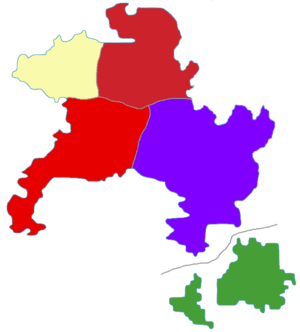Akashian general election, 1978
| |||||||||||||||||||||||||||||||||||||||||||||||||||||||||||||||||||||||||||||||||||||
200 seats in the National Assembly 101 seats needed for a majority | |||||||||||||||||||||||||||||||||||||||||||||||||||||||||||||||||||||||||||||||||||||
|---|---|---|---|---|---|---|---|---|---|---|---|---|---|---|---|---|---|---|---|---|---|---|---|---|---|---|---|---|---|---|---|---|---|---|---|---|---|---|---|---|---|---|---|---|---|---|---|---|---|---|---|---|---|---|---|---|---|---|---|---|---|---|---|---|---|---|---|---|---|---|---|---|---|---|---|---|---|---|---|---|---|---|---|---|---|
| Turnout | 89,5% | ||||||||||||||||||||||||||||||||||||||||||||||||||||||||||||||||||||||||||||||||||||
| |||||||||||||||||||||||||||||||||||||||||||||||||||||||||||||||||||||||||||||||||||||
 Most voted party by province | |||||||||||||||||||||||||||||||||||||||||||||||||||||||||||||||||||||||||||||||||||||
| |||||||||||||||||||||||||||||||||||||||||||||||||||||||||||||||||||||||||||||||||||||
A general election was held in Akashi on 24 June 1978. The incumbent Yumiko Nagatsuki government was re-elected with a minority.
The "black budget" of 1977 had caused turmoil in the government: Kasumi Kuroki resigned, Yumiko Nagatsuki became leader of the Socialist Party, and one faction that had voted against the "black budget" had split off to form the Justice Party. The Green Party also made its first appearance in a general election.
During the campaign, Yuna sought to project a more attentive and pragmatic image than her successor, promising more conventional policies to combat the "siege economy". This upset some SP supporters who saw it as a betrayal, but she hoped to win more support from floating voters who were unconvinced by both the left and the right.
While the centre-right parties continued to attack government "mismanagement" of the economy, their campaign was hampered by a continued need to separate themselves from the dark blue bloc, particularly the Tax Cuts Party and Freedom League's increasingly strident attacks on the Sōhyō and redistributionist taxation policies.
Results
| General election, 24 June 1978 | |||||||||
|---|---|---|---|---|---|---|---|---|---|

| |||||||||
| Party | Party list | Constituency | Total seats |
+/- | |||||
| PR | % | +/− | STV | % | +/− | ||||
| Socialist Party | 1.107.620 | 20,0% | -0,4% | 1.401.838 | 25,2% | -3,8% | 35 | -10 | |
| National Cooperative Party | 636.881 | 11,5% | -0,5% | 611.913 | 11,0% | +0,5% | 24 | -3 | |
| Communist Party | 609.191 | 11,0% | -0,4% | 890.056 | 16,0% | ±0,0% | 25 | -3 | |
| Agrarian Party | 376.591 | 6,8% | -0,4% | 383.837 | 6,9% | -1,1% | 18 | -2 | |
| National Union | 354.438 | 6,4% | -0,6% | 350.459 | 6,3% | -1,1% | 14 | -1 | |
| Liberal Party | 332.286 | 6,0% | -1,5% | 344.897 | 6,2% | -1,0% | 18 | -5 | |
| National Democratic Party | 304.595 | 5,5% | -1,3% | 166.885 | 3,0% | -0,1% | 10 | ±0 | |
| United Akashi | 287.981 | 5,2% | -0,3% | 161.323 | 2,9% | +0,2% | 9 | +2 | |
| Reform Party | 276.905 | 5,0% | -0,9% | 155.760 | 2,8% | -0,1% | 9 | +1 | |
| Conservative National Party | 265.829 | 4,8% | +1,3% | 233.640 | 4,2% | +1,7% | 13 | +9 | |
| Social Credit Party | 243.676 | 4,4% | -0,6% | 89.006 | 1,6% | +0,1% | 4 | -1 | |
| Green Party | 188.295 | 3,4% | +3,4% | 166.885 | 3,0% | +3,0% | 6 | +6 | |
| Justice Party | 177.219 | 3,2% | +3,2% | 150.197 | 2,7% | +2,7% | 5 | +5 | |
| Akashi Renewal Party | 83.071 | 1,5% | -1,3% | 61.191 | 1,1% | -0,1% | 2 | -1 | |
| Freedom League | 77.533 | 1,4% | -0,4% | 94.568 | 1,7% | +0,7% | 1 | -1 | |
| Tax Cuts Party | 66.457 | 1,2% | -0,3% | 166.885 | 3,0% | -1,5% | 1 | ±0 | |
| Independents | 149.529 | 2,7% | +1,0% | 133.508 | 2,4% | -0,1% | 6 | +2 | |
| Total | 5.538.098 | 100% | — | 5.562.849 | 100% | — | 200 | — | |
| Registered voters and turnout | 6.187.819 | 89,5% | — | 6.187.819 | 89,9% | ||||
| Bloc strength | ||
|---|---|---|
| Bloc | Parties | Seats |
| Crimson bloc | CP, SCP, GP | 35 |
| Pale crimson bloc | SP, NU, JP | 54 |
| Light yellow bloc | NCP, AP | 42 |
| Light blue bloc | LP, NDP, RP, UA | 46 |
| Dark blue bloc | CNP, ARP, FL, TCP | 17 |
- Government: Socialist Party–National Cooperative Party–Justice Party–National Union–Agrarian Party coalition.
Despite a loss of 10 seats, the SP remained the largest party in the National Assembly. The pale crimson bloc also remained the largest, but now the difference between it and the light blue bloc had narrowed to 8 seats.
The Conservative National Party managed to channel a significant protest vote, leaping ahead of its dark blue bloc colleagues. Its rise alarmed the light blue bloc, setting the stage for heightened conflict over who would have the leading role on the right.
While Yuna added the JP to the coalition, the government now fell short of a majority, with 96 seats out of 200. In order to retain confidence, it would have to rely on either independent support, or outside support from the crimson bloc. This placed Yuna in a conundrum, as her own instinct was to retreat from the strict course that Kasuko had charted, fearing public backlash.
Ultimately, Yuna lasted less than 2 years in office: she resigned after a parliamentary defeat in 1979, and was succeeded by her agriculture minister Hikaru Katayama. In turn, Hikaru's loss of a budget vote caused a snap election in 1980, which brought Akashi to its deepest political crisis since the Summer of Freedom.



